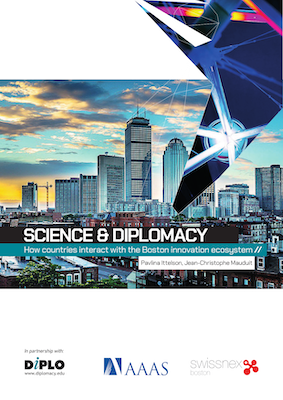Note: This article is a part of the publication ‘Science diplomacy capacity development: Reflections on Diplo’s 2021 course and the road ahead’
The idea to create a course on Science Diplomacy was sparked from a conversation with Amrita Banerjee, the then coordinator of the newly established NSPN Science Diplomacy Exchange and Learning (SciDEAL) Program. It was clear from the start that the goals of the SciDeal Program to give early-career scientists an opportunity to be involved in Science Diplomacy, and Diplo’s goals of cross-sectoral capacity development, were an excellent match. Soon after, Diplo engaged five fellows, all scientists, to begin what would become our Science Diplomacy course. Nine months (and one baby) later, we welcomed the first cohort of participants.
When we sat down to hash out the course details, it was clear that there was a need to better understand the link between science and the UN sustainable development goals (SDGs), as well as for wider adoption of evidence based policymaking. This was especially important for small and developing countries, as their exposure to this subject still needs to be built up.
The second module of the course which I presented dealt with the SDGs, specifically with their shaping over the years, current standing, and the fora within the UN system where they are deliberated. The purpose of this module was to give the participants a general understanding of the SDGs and provide a framework to delve deeper into the individual topics in the latter weeks of the course. The participants jumped right into the discussions on achieving the SDGs, focusing on leaving no one behind, the reality check that the pandemic brought, and the role of science as both a source of solutions and a catalyst.
Through interactions like these, participants were challenged to explore and expand their boundaries of knowledge and understanding. With such training, they may themselves become a bridge between science and diplomacy. As the instructor, I consider the interactions between our participants, all from different backgrounds, professional experience, and different parts of the globe, the most rewarding part of teaching. I am glad that the fellows and participants felt the same.
In the time since we first started to draft the outline for the course, the role of Science Diplomacy has only grown in importance. Environmental challenges, health, food security, and water safety all benefit from greater Science Diplomacy engagement. The same is true about achieving foreign policy goals. For this reason, I look forward to welcoming future participants onto our course.








